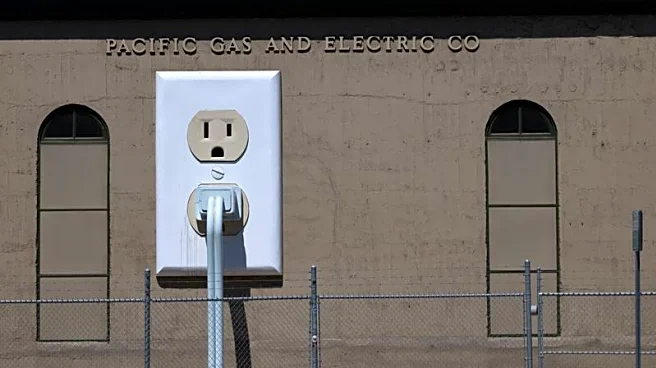What's Happening?
President Trump's trade adviser, Peter Navarro, has criticized a recent ruling by the U.S. Court of Appeals for the Federal Circuit, which deemed Trump's tariffs illegal. The court ruled that Trump overstepped his authority by using the 1977 International Emergency Economic Powers Act to justify tariffs against multiple countries. Navarro warned that blocking these tariffs could have severe consequences for the U.S. economy. The ruling allows the tariffs to remain in effect until October 14, providing time for an appeal to the Supreme Court. Navarro expressed optimism about the administration's chances in the Supreme Court, citing a strong dissent in the appeals court.
Why It's Important?
The appeals court ruling challenges a key component of Trump's economic policy, which has been central to his administration's trade strategy. If the Supreme Court upholds the ruling, it could significantly impact U.S. trade relations and economic policy. The decision could affect industries reliant on international trade and alter the balance of economic power. Navarro's comments underscore the administration's view of the tariffs as crucial to national economic security. The outcome of this legal battle could shape future presidential authority in trade matters.
What's Next?
The Trump administration plans to appeal the ruling to the Supreme Court, with the final decision expected to have major implications for U.S. trade policy. The administration is preparing its arguments, hoping to overturn the appeals court decision. The Supreme Court's ruling will determine the legality of Trump's tariffs and could set a precedent for future presidential actions in trade. Stakeholders, including businesses and trade partners, are closely monitoring the situation, anticipating potential changes in trade dynamics.










